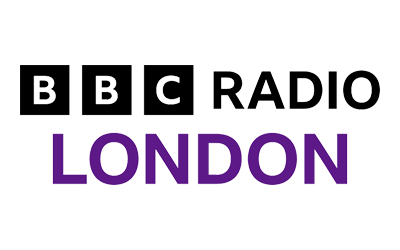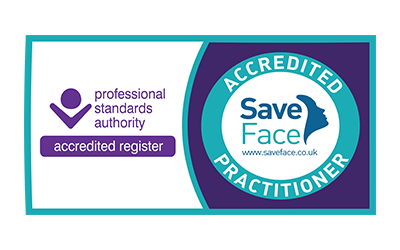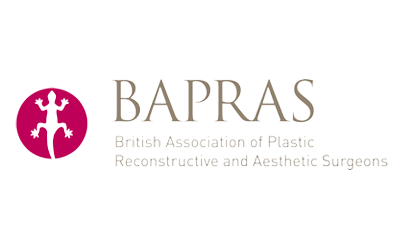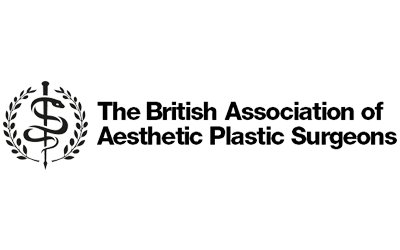What qualifications are needed to become a plastic surgeon?
According to the British Association of Plastic, Reconstructive and Aesthetic Surgeons (BAPRAS) it takes a total of 15-16 years to become a fully qualified and practising plastic surgeon.
The training to become a plastic surgeon is divided into several stages:
Stage 1: Medical school
This is the standard medical training, which takes 5-6 years at university. Your degree must be recognised by the General Medical Council (GMC).
In order to be accepted to study medicine at university you will need high A Level grades – ideally AAA in chemistry, biology and physics or maths – as entrance is hugely competitive and only the very best candidates are chosen. This training generally lasts five years.
If you already have an undergraduate degree in a science subject, you can apply for an medical graduate entry programme. These are accelerated and only last four years instead of five thanks to the scientific knowledge you gained on your first degree.
Stage 2: Foundation programme (FY1 & FY2)
After finishing medical school, trainees enrol on a foundation programme in order to gain experience in a wide range of healthcare settings. Trainees will spend time in general practice and other forms of medicine as well as surgery.
Generally, foundation programmes do not include a plastic surgery placement, but it is not necessary in order to undertake Core Surgical training in plastic surgery.
After completing their foundation, trainees will be fully registered with the General Medical Council. This enables them to apply for Core Surgical training.
Stage 3: Core surgical training (CT1 & CT2)
Entering this stage of training is difficult and competitive. Trainees must pass through a process of national selection in which candidates are chosen based on their work portfolios and interviews.
Once accepted, trainees usually work a series of jobs in different surgical specialities lasting between four and six months, on rotation, for two years. Candidates must spend at least six months in a plastic surgery post to qualify for future training.
It is also possible to apply for a themed Core Surgical training programme, in which trainees will spend a year to 18 months focusing exclusively on plastic surgery. Of course this limits knowledge in other areas, but it does give a trainee committed to plastic surgery an advantage.
During Core Surgical training, trainees must pass the MRCS exam. This is a test of basic surgical competence and enables the candidate to apply for Speciality Training. When applying candidates rank the regions they want to work in and jobs are given based on their interview scores.
The application window for plastic surgery Speciality Training is held once per year and it is one of the most competitive branches of all. Candidates are chosen based on their portfolio and evaluations of their experience as well as assessments of communication, presentation and clinical skills.
Stage 4: Speciality training (ST3-8)
After completing their Core Surgical training, candidates will then spend six years of training focusing exclusively on plastic surgery. These six years are divided into two sections:
- Intermediate (ST3-6) – this period of time is used to gain universal skills for plastic surgeons
- Final (ST7-8) – during this stage senior trainees undergo research and training in their area of specialism to refine their skills
Some candidates choose to spend their senior years working within a Training Interface Group (TIG) Fellowship.
These cross boundaries of specialist interest and can include:
- Major trauma
- Cleft lip and palate surgery
- Hand surgery
- Therapeutic use of lasers
- Head and neck surgical oncology
- Oncoplastic breast surgery
- Skin oncology
- Reconstructive and aesthetic surgery
Admission to all four of these stages of training – as well as to a Training Interface Group Fellowship – is highly competitive. Selection is made through a combination of exam grades, portfolio assessments and interviews and assesses temperament and character as well as academic achievement.
Consultant posts
Once you have completed your speciality training years, you can then apply to consultant posts.
Some qualified plastic surgeons choose to undergo a fellowship prior to taking up a consultant post. Areas of special interest in plastic surgery include:
- Academic plastic surgery
- Aesthetic surgery
- Burns
- Cleft lip and palate surgery
- Complex wound
- Craniofacial surgery
- Otoplasty (ear pinning surgery)
- Genitourinary reconstruction
- Head and neck surgical oncology
- Hand and upper limb surgery
- Lower limb trauma
- Oncoplastic breast surgery
- Pelvic reconstruction
- Skin and soft tissue tumour surgery
- Vascular anomalies
Highly experienced plastic surgeons will be accredited by respected bodies such as the Royal College of Surgeons (RCS) and the British Association of Aesthetic Plastic Surgeons (BAAPS).
What skills does a plastic surgeon need?
The career of a plastic surgeon is not one to embark upon lightly. It requires at least 15 years of commitment before you fully qualify and training can be more expensive than many other medical professions due to the scarcity of plastic surgery posts.
You will need to be patient, hardworking, disciplined and highly professional in order to succeed as a plastic surgeon, with a degree of perfectionism that will enable you to achieve the best possible results for your clients each and every time.
Your high level of academic and scientific ability must be balanced by a highly empathic nature and the ability to read people. Recognising when a client is psychologically unfit to have plastic surgery is a vital aspect of the role of a surgeon.
This is not a career for the faint of heart. It is estimated that around 15% of clients who visit a cosmetic surgeon will suffer from body dysmorphic disorder (BDD) and 50% of BDD sufferers who undergo surgery are not pleased with the result.
What are the advantages of becoming a plastic surgeon?
There are many advantages to becoming a plastic surgeon, including:
- There are few transformations more powerful than that of someone’s physical features. Cosmetic surgery is an extremely rewarding role that can have a powerfully beneficial impact on patients’ lives
- Working as a plastic surgeon affords a great deal of variety. You will be dealing with people of all age groups and anatomical sites as well as having the opportunity to specialise in a range of different niches depending on what suits you
- It is a very well paid career, as befitting the level of study necessary to become a plastic surgeon. Once established, you could be earning an attractive salary
- The role of a plastic surgeon is one which affords great personal freedom. Once qualified you will be able to work all over the world, or establish yourself in private practice, set up your own business and charge your own rates
- Plastic surgery is a highly dynamic field in which techniques are constantly changing and improving, giving many talented surgeons the chance to develop expertise in new procedures
What are the challenges that come with becoming a plastic surgeon?
There are a few challenges that come with becoming a plastic surgeon, including:
- An extremely long period of training, requiring nearly two decades of schooling and work weeks that can extend to 100 hours while studying
- The number of posts for the role of consultant has doubled over the last twenty years, but plastic surgery remains a hugely competitive career choice, with as many as 120 applicants to every position
- As a cosmetic surgeon, you will be responsible for the happiness and self-worth of your patients and any mistake could have grave consequences
- Funding for the role is very limited and trainees may have to pay for extra education themselves. Needless to say, this is a very expensive course of action and many trainees will struggle to bear the costs until they are more established
- As the number of plastic surgeons has increased in the UK and elsewhere, so too has the number of lawsuits brought against surgeons by clients who are dissatisfied with the results of their procedures
How long does it take to become a plastic surgeon?
The path to becoming a plastic surgeon is long – but it is worth it! Plastic surgeons need to be highly skilled in their field, and the length of time training reflects that. The years add up:
5 years: a degree in medicine recognised by the General Medical Council (in some cases, a previous foundation year. And an optional additional intercalated year)
2 years: a foundation programme of general training
2 years: core surgical training in a hospital
Up to 6 years: specialist training














